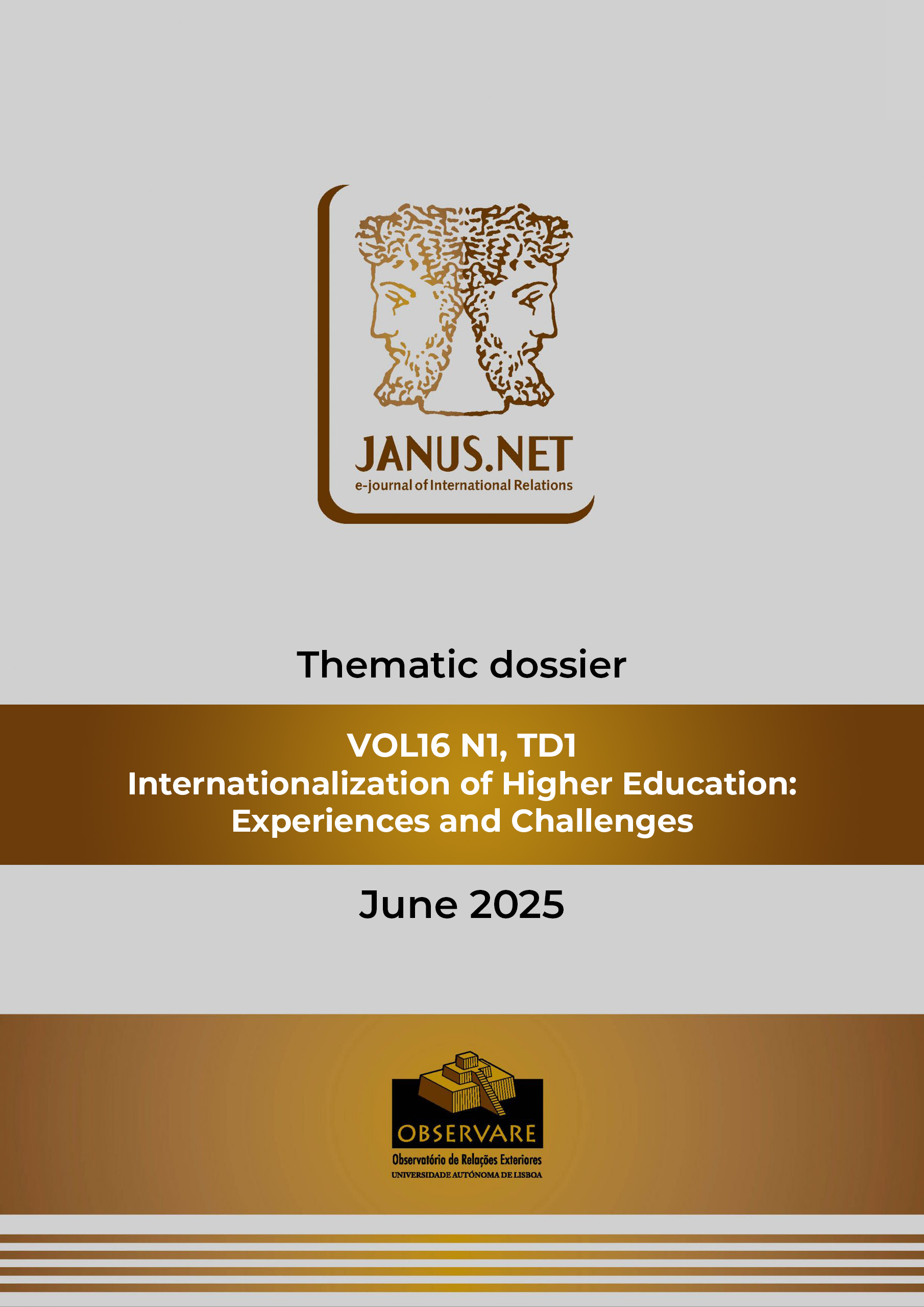INTERNATIONALIZATION OF HIGHER EDUCATION AND PUBLIC POLICY: ADVANCES AND SETBACKS IN THE STRATEGIC ACTIONS FOR THE INTERNATIONAL INTEGRATION OF BRAZILIAN UNIVERSITIES
DOI:
https://doi.org/10.26619/1647-7251.DT0325.10Keywords:
Brazil, Internationalization, Higher Education, Public Policy, ManagementAbstract
The establishment of a comprehensive national public policy for the internationalization of higher education in Brazil has been identified as an urgent and indispensable priority. Brazil continues to face challenges in its strategic planning aimed at enhancing international integration within the higher education sector, particularly in effectively promoting its universities on the global stage. This study seeks to underscore the significance of implementing a national internationalization policy tailored to Brazilian universities, grounded in a thorough understanding of the current dynamics and characteristics of the internationalization process in the country. To achieve this objective, the study first examines the organizational structures of key government agencies, along with their respective initiatives and programs related to internationalization. Subsequently, these elements are critically analyzed in relation to the internationalization management processes at Higher Education Institutions (HEIs), weighing their advantages and disadvantages. Through this analysis, the study identifies the principal challenges confronting the development of a cohesive national policy for internationalization. Methodologically, this research employs a qualitative approach, utilizing bibliographic and documentary analysis. The findings reveal that while the Brazilian government has played a significant role in the internationalization of higher education, its actions have often been fragmented across various agencies. This lack of coordination has resulted in both benefits and setbacks for the internationalization efforts of Brazilian HEIs and for the country as a whole. Based on these findings, the study recommends fostering stronger collaboration between the government and HEIs in the formulation of national strategies, as well as promoting a clearer understanding of Brazil’s existing capabilities, ambitions, and potential within the internationalization landscape.


